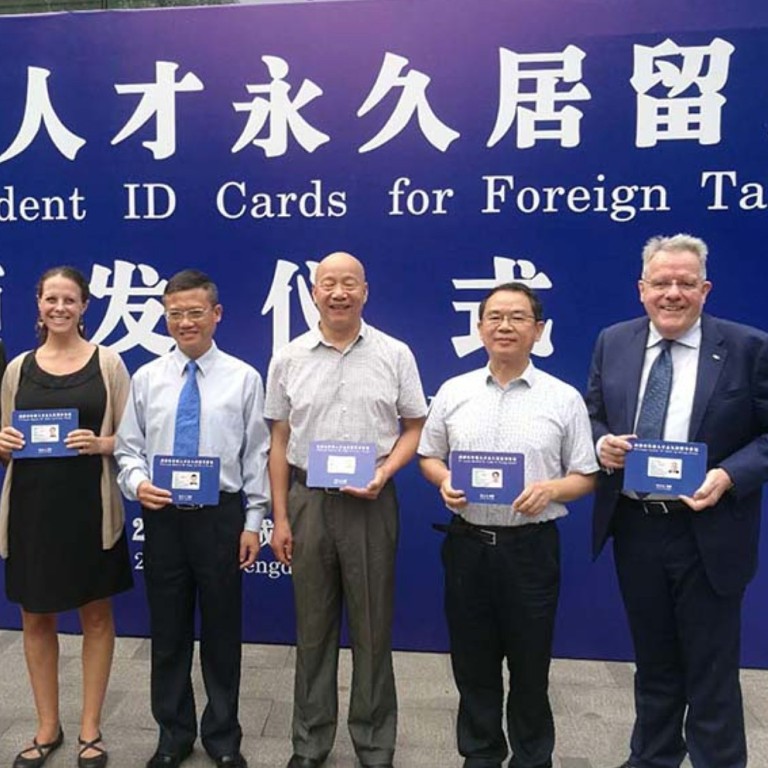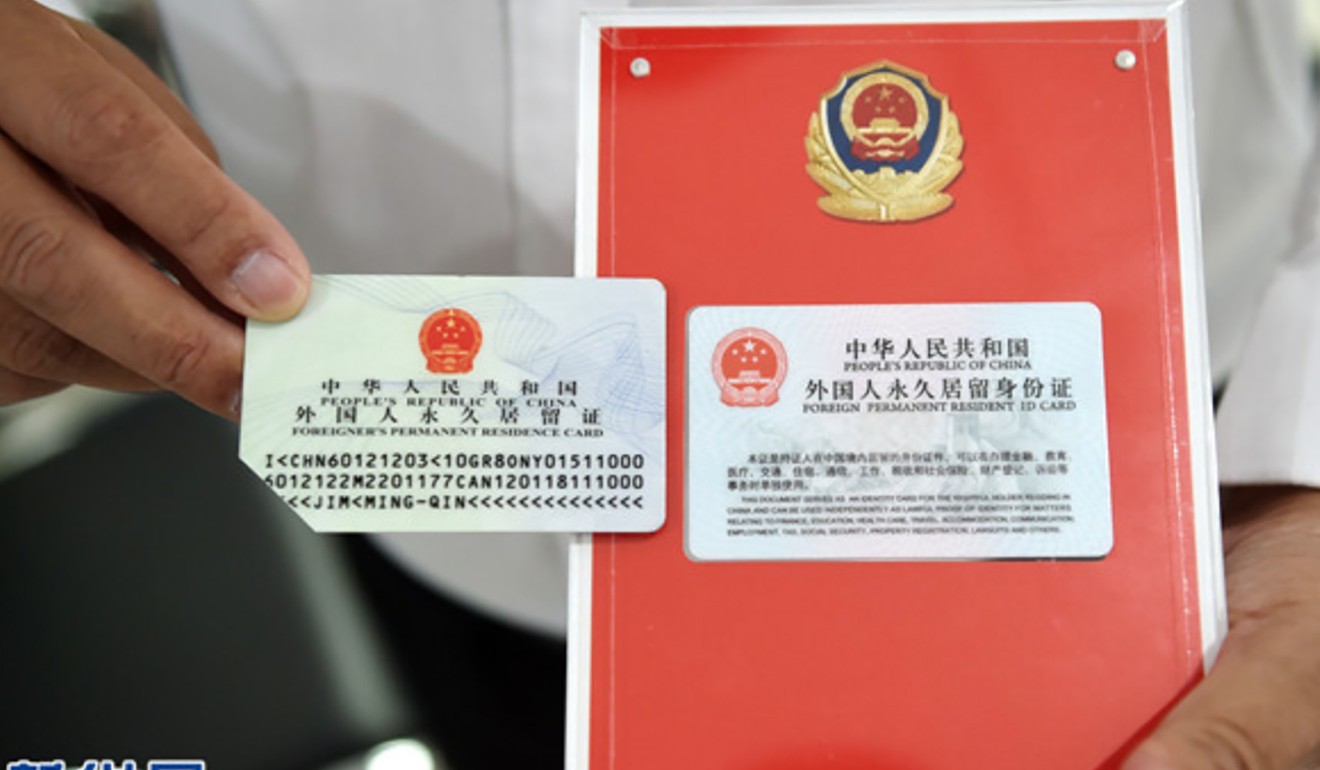
China relaxes immigration rules to attract and retain more highly skilled overseas talents
- Permanent residence and long visas on offer as Beijing taps entrepreneurial talents
- People of Chinese ethnicity from overseas should also find it easier to settle
China’s Ministry of Public Security is to relax its immigration rules, opening the door to more highly skilled overseas workers and allowing a greater number of foreigners the opportunity to become permanent residents.
The rule changes, which will take effect from August, will also allow top talents from abroad to apply for long-term visas and make it easier for budding overseas entrepreneurs to start a business in China, the ministry announced on Wednesday.
Previously, only foreign talents who made “major and extraordinary contributions” while in China or who filled a skills gap were allowed to apply for permanent residence. From next month, those with in-demand skills and those whose annual income or taxes reached a specified threshold can apply for permanent residence, as can their spouses and underage children.
Those who have held a job in China for four years in a row and have been resident for at least six months each year, whose annual income is higher than six times the annual average worker’s wage in their city of residence, and who pay at least 20 per cent of their income in taxes, are eligible for permanent residence under the new rules.

In Beijing, the average salary last year was 94,258 yuan (US$13,706), setting the threshold for overseas candidates at 565,548 yuan (US$82,236) per annum.
The revised policy will also make it easier for people of Chinese ethnicity from overseas to apply for permanent residence. Those with a doctoral degree, or who have worked in what the ministry called “key development areas” for four years with a stay of at least six months each year are also eligible for permanent residence.
To foster a favourable business environment, those talents who come to China to study, or for business or employment, can apply for a long-term visa that lasts between two and five years, Chen Bin, head of foreign nationals management department with the State Immigration Administration, said.
Highly-skilled foreign youths, or those who graduate within two years from internationally accredited universities and start a business in China, can apply for a two-year residence permit.
Immigration is good for business, not a burden, in Hong Kong and the rest of the world
The policy shift followed a review of measures introduced in free trade pilot zones, renovation reform model areas or national-level new areas in 16 provinces and municipalities in 2015. These zones were created to test economic, financial and social reforms.
“Pilot programmes show these policies are very valuable and have clear effects,” said Chen. “The impact is wide and the demand is high. They will effectively promote opening up and social and economic development.”

More than 133,000 visas and permanent residency permits were issued to foreign entrepreneurs, investors, technology and business executives, and the “most effective ones” in the past four years, Chen said.
Attaining permanent residence in China has been difficult, but Beijing has increased its efforts to attract and retain talents whose skills are needed.
A People's Daily report in 2017 said China approved 7,356 green cards from 2004 – when it introduced permanent residence – until 2013.
New immigration bureau set up to handle growing number of foreigners in China
To improve immigration services, a bureau was set up in April last year to deal with visa and permanent residence applications. In the two months after it opened, China approved more than 1,800 permanent residences, almost matching the entire number of approvals for 2007.
The latest measures came as China toned down the promotion of its Thousand Talents Programme, which was aimed at attracting skilled overseas workers but became a focus for accusations from the United States that it was set up to steal intellectual property from economic rival nations.

